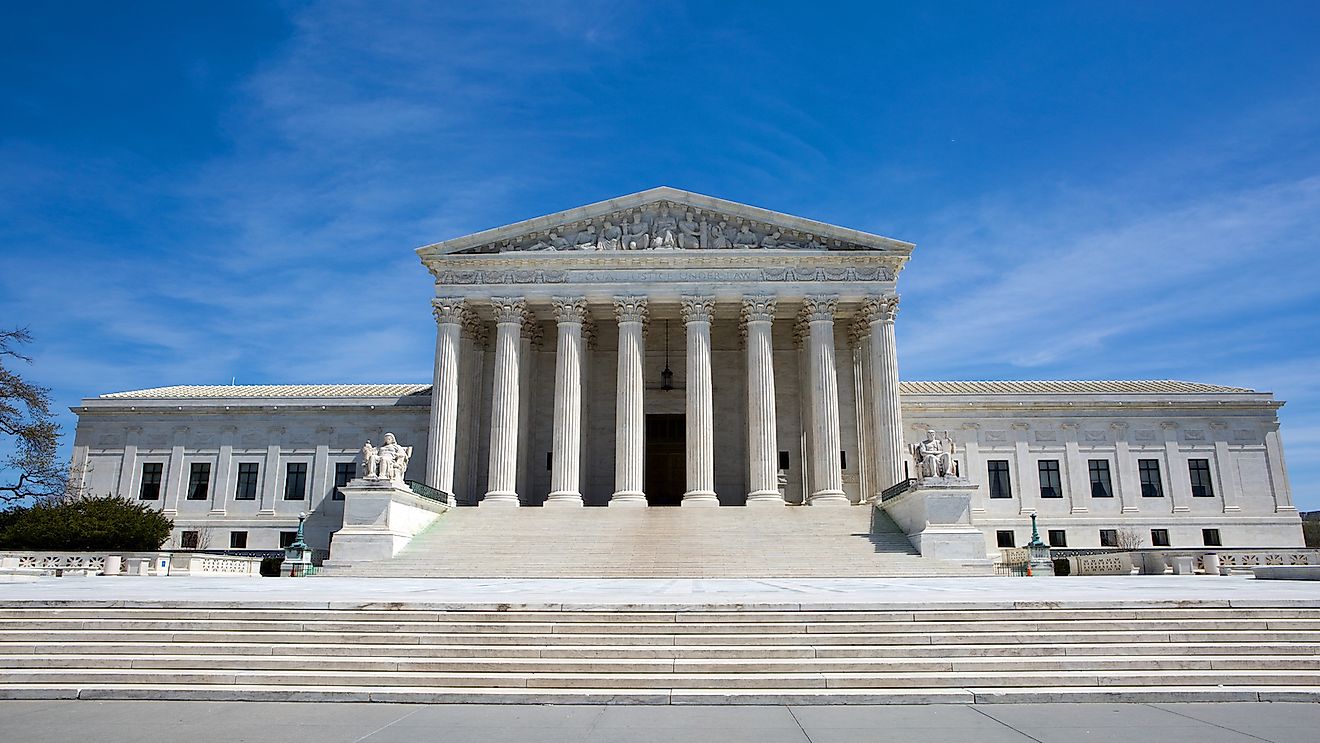Is The U.S. Supreme Court Republican Or Democrat?

The Supreme Court of the United States (SCOTUS) is composed of nine justices who have been given lifelong appointments by sitting presidents upon approval of the Senate. As the highest component of the judicial branch of the government of the United States, SCOTUS is responsible for reviewing the constitutionality of all U.S. laws. Sometimes they uphold the laws, sometimes they do not. SCOTUS was established by the U.S. Constitution and is one of the checks and balances to the other two branches of the government— legislative (Congress) and executive (President).
The justices who sit on the Supreme Court have been nominated by a president and confirmed by the Senate. SCOTUS is particularly important because when one side or another push through legislation or executive order, the courts and the justices evaluate and determine the constitutionality and legitimacy of the said items. They also decide legal disputes among states and discrepancies in lower court rulings. This is why an impartial reviewing of the law would be critical.
The Supreme Court should be non-partisan: judges who are appointed to it are not supposed to bring their allegiances as Republicans or Democrats to the bench. However, as the appointments are made by presidents, judges are often perceived as having ideological leanings, whether to the Republican side or the Democratic side.
Traditionally, the Supreme Court has been understood as being a more slow-moving branch of government than either the legislative or the executive. Additionally, there has been a perspective that the courts are more centrist or more reflective of the majority opinion, based on the length of the appointment and the longer view of things that are afforded to the justices because of the timeframe.Unfortunately, at this time in history, the Supreme Court is seen to be more partisan and more committed to allowing personal ideology to influence their decisions rather than an impartial reviewing of the law. This trend has been affected by both the Republicans and the Democrats.
Most recently, Mitch McConnell’s decision when Justice Scalia died to deny President Obama’s nomination— with 11 months of Obama’s term still remaining— hugely influenced this partisan swing. Additionally, Justice Kennedy’s unprecedented retirement in the summer of 2018 was seen as “the farewell to even the pretense of dispassionate, nonpartisan jurisprudence” (Garrett Epps for the Atlantic). More and more frequently, divisive cases are resulting in voting blocs that follow party lines. Specifically, Republican appointees have, with unwavering consistency, made rulings that favor the big corporate and special interests that fund the Republican party. This has occurred despite precedent and congressional findings. Thankfully, there is a bipartisan effort at work currently to reform the Supreme Court: some of these efforts include incorporating term limits, among other reforms.











